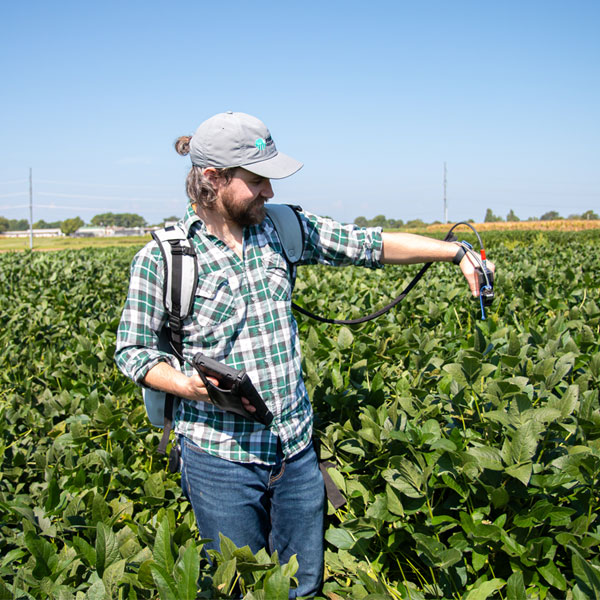Environmental Dynamics
Environmental Dynamics (ENDY) is an interdisciplinary graduate program studying the complex interactions between humans and the environment. The ENDY program offers master’s and doctoral programs that appeal to students across a variety of disciplines including anthropology, geology, geosciences, engineering, architecture, biological sciences, agriculture and more.Three Degree Options: Choose Your Path
| Master's Degree | Doctoral Degree | MicroCertificates (in Environmental Resiliency) |
|---|---|---|
| Program Format: In Person | Program Format: In Person | Program Format: Online |
|
Program Credit Hours: 30 credit hours* *30 hours includes 6 thesis hours. |
Program Credit Hours: 72 credit hours* *54 hours coursework and 18 hours dissertation research or 24 hours coursework and 18 hours dissertation research with a Master’s from an accredited program. |
Program Credit Hours: 9 credit hours |
Enrollment Requirements
All potential Environmental Dynamics students must apply to the Graduate School and International Education for admission and meet all Graduate School requirements. The ENDY program may also require additional information to determine the appropriateness and suitability of applicants for advanced study and research leading to the Master or Doctor of Philosophy in Environmental Dynamics.
-
Bachelor's or Master's Degree in an environmental field such as anthropology, geography, geology, biological science.
-
3.2 GPA or higher
-
English Language Proficiency
For non-native English speakers: a sufficient score on university accepted language exam.
Application Checklist
- Graduate School Application
If you are applying for financial support, submit a Graduate School Assistantship form as well. - Official Transcripts
For non-University of Arkansas students. - Three Letters of Recommendation
From professional or academic references. - One Example of Technical Writing
- Curriculum Vitae or Resume
- Graduate Record Examination (GRE)
While the GRE is not a requirement, it is strongly recommended, especially for students seeking funding. Please note – applicants with GRE verbal + quantitative scores of less than 300 are rarely funded. - Other Supporting Documentation
Any other relevant information that would assist the Admissions Committee in selecting applicants.
Notable Deadlines
Admission and Funding of Fall Applications: Dec. 15
Consideration for Teaching Assistantship:Materials must arrive by Dec. 15
Qualifying MEST Support Candidates:Submit ENDY application prior to Dec. 15
Cost and Funding Resources
Program of Study
All master’s and doctoral students in the Environmental Dynamics program will take four core courses. While the environmental resiliency microcertificates are offered as part of the Environmental Dynamics program, the required courses vary. Visit Global Campus for more information.
Additionally, students are required to take three semesters of ENDY 6991: Colloquium—which does not count towards the required 24 hours of coursework. In consultation with a student’s advisory committee, they will select another 12 hours of coursework to fit their individual needs.
An additional 18 hours of dissertation research beyond the 24 hours of coursework are also required. Dissertations in the ENDY program are based on original, innovative ideas and are expected to contribute significantly to knowledge of human interactions within the environment.
Students entering with a bachelor’s degree are required to take an additional 30 credit hours decided on in direct consultation with their committee.
Student wishing to terminate with a Master’s degree are required to take a total of 30 credit hours including the 12 hours of required core classes and one colloquium (which does not count toward the 30 hour).
For more information on policies and procedures of the ENDY program, view the ENDY Handbook.

Our Program Handbook
The Environmental Dynamics interdisciplinary program spans multiple disciplines across
campus. The program’s nationally recognized research efforts rely primarily on field
research in the areas of natural and social impacts of climate, impacts of rapid economic development on environmental quality, landscape evolution
and degradation, natural hazards, watershed sciences, soil erosion and nutrient depletion. Our handbook provides information relating to program specific policies and procedures
that will both act as an overview for prospective students and used as a guide for
current students during their time in the Environmental Dynamics program.
View the Handbook

Graduate Microcertificate in Environmental Resiliency
This microcertificate is the first step to understanding resiliency. Students who complete the certificate will understand the foundational theories and frameworks of the following types of resilience and understand which theoretical positions to use to access methods for case study application – Ecological Resilience, Socially Catalyzed Resilience and Socio-Ecological Resilience.

The hands-on research opportunities, mentorship from dedicated faculty and a global perspective have prepared me to tackle complex climate challenges. The Environmental Dynamics Program has equipped me with the skills and confidence to advance my academic goals and make a real impact on climate resiliency in Panama and around the world. The U of A has not only shaped my academic journey but also ignited my commitment to global environmental stewardship.
– Jessie Abrego Bonilla, ENDY Student
View More Students and Alumni Read Jessie's Feature
Program News
Program Research
Our Program Staff
 Dr. Peter S. Ungar
Dr. Peter S. Ungar
Director of Environmental Dynamics
 Cay Mathis
Cay Mathis
Assistant Director of Environmental Dynamics
Contact Environmental Dynamics
Physical Address:
336 MAIN
Mailing Address:
340 N. Campus Drive
1 University of Arkansas
Fayetteville, AR 72701
Tel: 1-479-575-2508 Fax: 1-479-575-3469